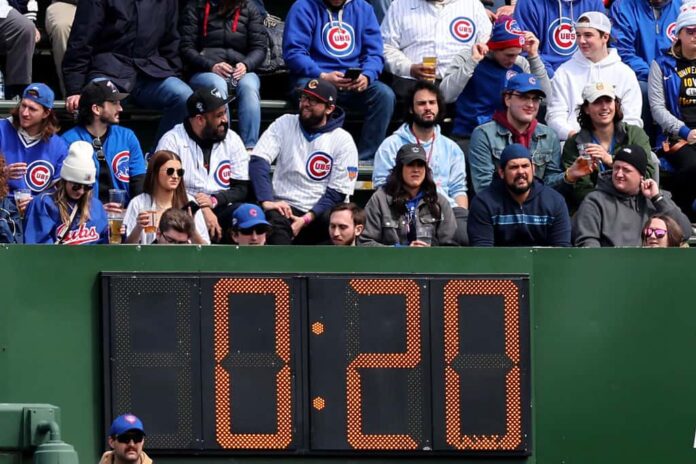MLB fans generally asked for quicker, shorter games and they got them.
The implementation of the pitch clock has had a huge effect in that regard, effectively shaving about half an hour of playing time on average.
In life, time is the most valuable resource because it doesn’t come back.
Shorter games mean more time for people, and they feature more balls in play and stolen base attempts due to the shift restriction and bigger bases.
Generally speaking, the rule changes have been positive.
What the rules can’t change is poor pitching.
Even managers have a limited say on that front: the front office has more of a responsibility there.
Lousy pitching was the culprit for the extended game in the Los Angeles Dodgers – Colorado Rockies Monday affair.
“First 4 innings at Dodger Stadium played in 57 minutes…#Dodgers 7 run inning vs COL pitching played for 42 minutes…The clock doesn’t make poor pitching go any faster,” Dodgers insider David Vassegh tweeted.
First 4 innings at Dodger Stadium played in 57 minutes…#Dodgers 7 run inning vs COL pitching played for 42 minutes…The clock doesn’t make poor pitching go any faster.
—David Vassegh (@THEREAL_DV) April 4, 2023
Four innings in 57 minutes is actually a terrific pace.
The game, at that pace, would have been completed in just over two hours.
It would have been a dream scenario for MLB.
The Rockies, however, have some of the worst pitching in the league, and the Dodgers’ offense is potent.
It makes for a really bad combination if you want a game to be done quickly.
Rockies pitchers just couldn’t get Dodgers batters out.
In the grand scheme of things, the pitch clock has brought positive things to baseball.
Note, however, that every game has different dynamics, and there will be some exceptions based on how the teams are performing.
NEXT:
MLB Insider Notes An Interesting Trend Taking Place In Boston

